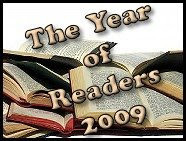His comes from Anthony Burgess' Earthly Powers a book that I now need to read.
Mine is a tough call. Rex Stout is always good for a quick, evocative opening line, like this one from If Death Ever Slept:
It would not be strictly true to say that Wolfe and I were not speaking that Monday morning in May.
He's got a number of good ones like that, but I can't say any one of them is my favorite. Of course, mystery writers are almost required to have enticing opening sentences, it's a genre thing.
Then there's Camus' famous opening to The Stranger:
Maman died today.
Although perhaps that needs the whole opening paragraph to really qualify.
Either way, my favorite of the moment is probably from Tristram Shandy:
I wish either my father or my mother, or indeed both of them, as they were in duty both equally bound to it, had minded what they were about when they begot me; had they duly consider'd how much depended upon what they were then doing;-that not only the production of a rational Being was concern'd in it, but that possibly the happy formation and temperature of his body, perhaps his genius and the very cast of his mind;-and, for aught they knew to the contrary, even the fortunes of his whole house might take their turn from the humours and dispositions which were then uppermost:- Had they duly weighed and considered all this, and proceeded accordingly,-I am verily persuaded I should have made a quite different figure in the world, from that, in which the reader is likely to see me.
Technically, that is one sentence, and I love it. Yes, I like my language a tad more Ciceronian than most people these days. However, it's not just the achievement of that monstrous sentence. It's also hilarious. Shandy lets his readers know precisely what they are in for, a long, digressive, bawdy piece of narration, all concerned in the history and origins of his main character.
So that's my favorite, what are yours?
